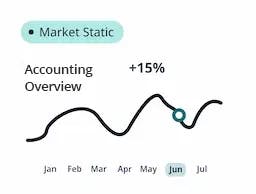
Admin
2024-01-16

Cybersecurity in Saudi Arabia is evidence of the country&pos;s determination to advance in the digital era, not merely a defense against online dangers. Through its promotion of teamwork, adoption of technology, and proactive approach to problems, the Kingdom serves as a prototype for cyber resilience.
Contact us?
Saudi Arabia's commitment to cyber security guarantees that its digital frontier is strong, safe, and prepared for the challenges of the future in a world where the digital environment is always evolving.
ERP systems offer a strong foundation of security for companies, acting as a safe first line of defense against external threats like phishing scams and cyberattacks, as well as internal dangers like fraud and misuse.
ERPs provide data security to enterprises by using standard-based security procedures. They manage risks and facilitate failover mechanisms to ensure continuous operation. They prevent attacks and continuously improve security measures, relieving businesses from the task of building internal protection from scratch.
KSA's cybersecurity
The Kingdom of Saudi Arabia is using cutting-edge technologies and cutting-edge tools across industries and organizations by its Vision 2030 aims. Large-scale digital transition does, however, present certain difficulties. The nation has seen an uptick in attempted cyberattacks over the past few years. In the Kingdom of Saudi Arabia, 110 million threats were identified, according to the Trend Micro Annual Cybersecurity Report for 2022.
Cyber security Arriving
However, Saudi Arabia continues to rank among the nations targeted by cyber threat actors the most globally. The Gulf region has some of the highest rates of cyberattack losses worldwide. In Saudi Arabia and the United Arab Emirates, the average cost of a cyberattack on an organization was $6.53 million in 2020, 69% higher than the global average, according to IBM data.
Saudi Arabia can bolster its cyber resilience by prioritizing projects such as education and training programs. Investing in cutting-edge technologies is crucial too. Encouraging public-private cooperation and establishing strong regulatory frameworks are other key steps. Developing a skilled cybersecurity professional workforce is essential for enhancing the country's cyber resilience.
Developing the Workforce
Building a skilled cyber workforce and safeguarding national entities have also been top priorities for Saudi Arabia.
Saudi Arabia is ranked second in the world after the United States by the International Telecommunications Union's Global Cybersecurity Index, which highlights the Kingdom's expanding collection of regulatory tools, toolkits, and standards.
According to Shilpi Handa, associate research director of cybersecurity at IDC MEA, "Saudi Arabia has made significant strides in bolstering its cybersecurity infrastructure over the last year." "The efforts have come in from both the public and private sectors, along with regulatory bodies."
Governmental Initiatives
The Kingdom has strengthened its cyber defenses proactively. Sensitive data and vital infrastructure are protected, as demonstrated by initiatives like the National Cybersecurity Authority (NCA).
Collaboration in the Private Sector
Working together, public and private sector organizations may provide a united front against cyber threats. The sharing of resources and expertise is facilitated by this synergy.
Investing on Technology
Saudi Arabia's expenditures in cutting-edge technologies, like artificial intelligence (AI) and machine learning, improve its capacity to identify and effectively counteract cyberattacks.
Saudi Arabia's Cybersecurity Issues and Solutions
Cyberspace security is not without its difficulties, and Saudi Arabia has a number of them.
Increasing Risks of Cyber Attacks
Cyber threats are becoming more frequent and sophisticated as digitization increases. The Kingdom is always adjusting to new ways of attacking.
Skills Gap in the Workforce
Saudi Arabia is making investments in cyber education and training to close the skills gap and effectively combat cyber threats.
Regulatory Framework
Strong cyber security laws guarantee industry compliance and hold companies responsible for data protection.
- Through organizations like the NCA, which establishes policies, carries out audits, and handles incident response, the government plays a crucial role.
- Users should use strong passwords, update software frequently, and use caution when clicking on dubious emails or links.
- To combat changing threats, the Kingdom is actively investigating AI-based defense methods.
- Reputable cybersecurity blogs and the NCA's website both offer insightful updates.
The Bottom Line
Saudi Arabia's approach to cybersecurity showcases its commitment to advancing in the digital era, beyond just defending against online threats. The country emphasizes teamwork, adopts technology, and takes a proactive stance in addressing problems. This approach positions the Kingdom as a model for cyber resilience.
Your company might suffer greatly if someone were to gain access to your ERP system. They may try to destroy you by stopping your vital infrastructure or by obtaining sensitive and financial information. They may even harm your business.
For this reason, you must implement cybersecurity safeguards for ERP systems and turn on any ERP security features your solution may already have. Of course, prevention is one thing, but in the unlikely event that a breach occurs, having a response strategy in place is essential.
At Peniel Computer, we've worked with various enterprises, including information security firms. Their mission is to aid corporations in safeguarding data and responding to cyberattacks. They ensure staff members understand cyberattack risks and defenses by providing training. We can help choose the right cybersecurity supplier for your ERP implementation, identify security flaws, and protect your assets.
Latest News
From Our blog and Event fanpage


